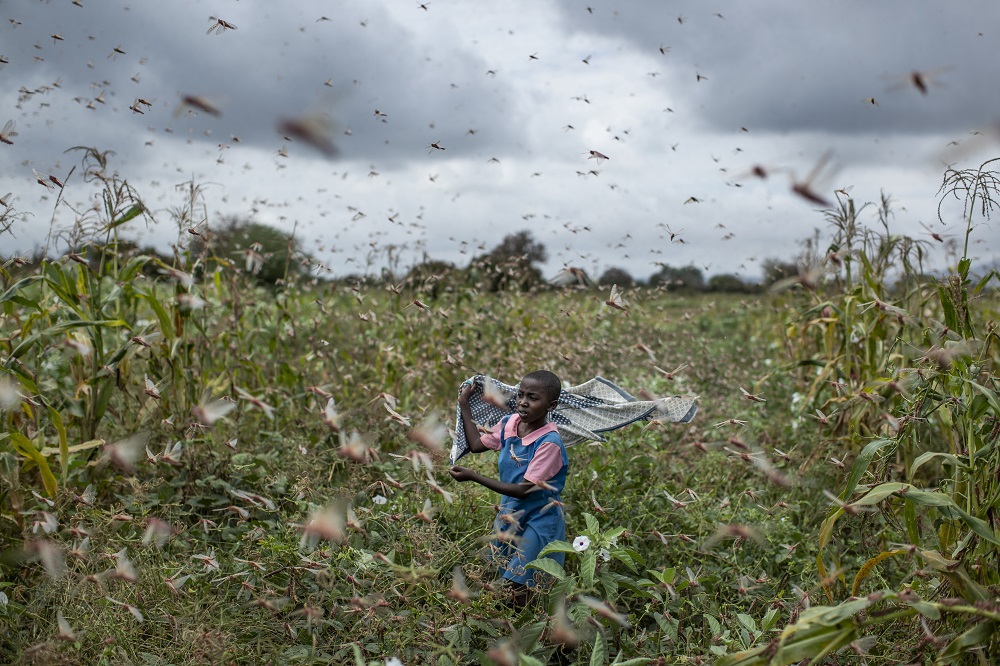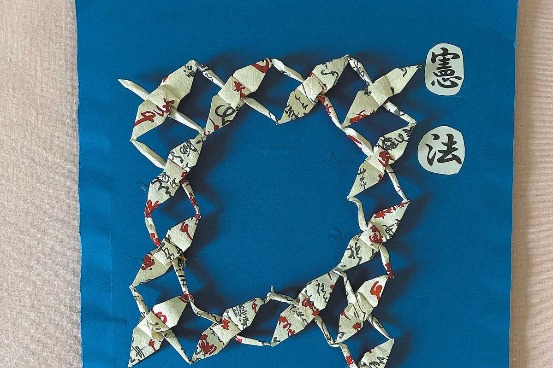Invading locusts deepen hunger fears in Kenya


MAHIGA-MERU, Kenya-After desert locusts invaded her farm in central Kenya, Mary Muthoni ran around her fields shouting and banging on an old iron sheet in an attempt to drive them away.
"They came here and sat on top of these trees as if to rest there for the night," Muthoni said.
"Then they decided to come down on my maize farm and started eating it, destroying the maize in the cobs and also the leaves."
The locusts crossed into Kenya from Somalia and Ethiopia at the end of 2019 and have so far infested 26 Kenyan counties. As the eggs they have laid hatch, food experts warned a second wave of young locusts will further destroy crops, intensifying hunger and environmental damage.
More than 3 million people already face serious shortages of food in Kenya's semiarid areas due to drought and flooding, according to the United Nations.
In a March update, the UN Food and Agriculture Organization, or FAO, said the locust situation remained "extremely alarming", specifically in Kenya, Ethiopia and Somalia where widespread breeding was in progress.
New swarms were starting to form, "representing an unprecedented threat to food security and livelihoods at the beginning of the upcoming cropping season", the agency added.
William Marwanga, associate director for livelihoods and resilience at World Vision Kenya, said the country experienced high rainfall in the last quarter of 2019, together with strong winds, which helped the locusts to multiply and spread.
Officials also fear the locust invasions will do more harm to ecosystems already under stress. Newly hatched locusts feed on crops, shrubs and pasture before they can fly, decimating huge patches of land.
The Kenyan government and its international partners, including the FAO, are working to control the locusts, both on the ground and from the air.
The FAO provided three more planes to assist with aerial spraying of pesticides this February.
But with locusts feeding near villages and farms, it can be hard to use chemicals safely, while the areas affected are vast.
Marwanga, based in Nairobi, said the government needed to intensify and scale up a coordinated response to the locust crisis at national and county levels.
That should include identifying the proportion of farmland infested by the desert locusts and their impacts on crops, livestock-keeping and natural resources, as well as guidance on how to curb the threat and recover from the invasions, he said.
Farmers have been advised to prepare for expected crop losses in the coming three months from the locust swarms and new hopper bands in affected areas, which could worsen hunger.
Agencies































